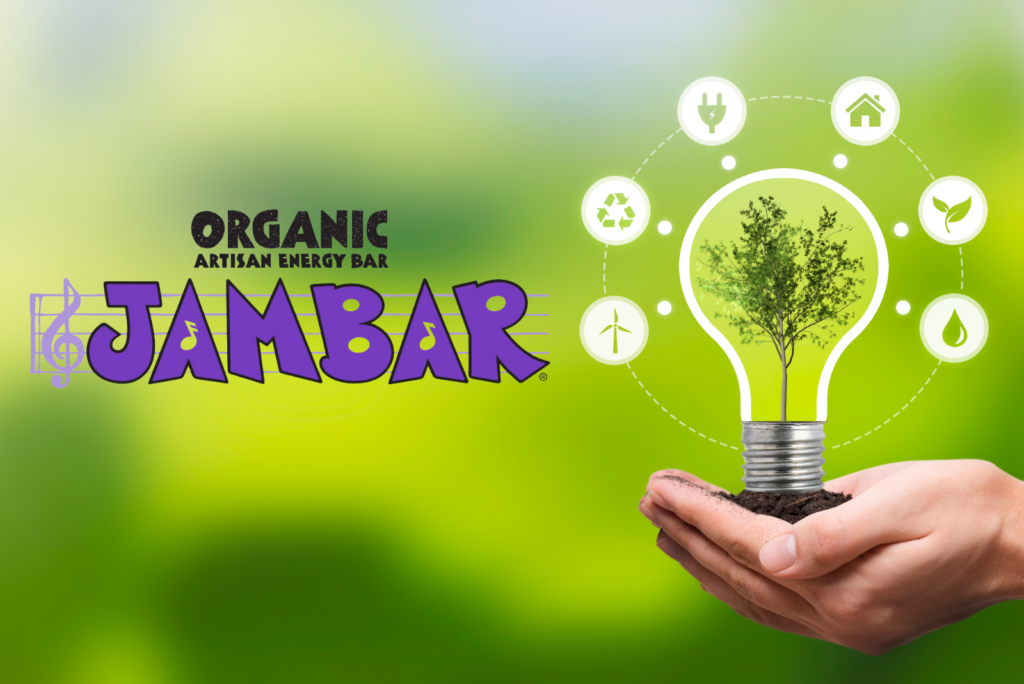Jambar was selected by the Berkeley Haas Center for Responsible Business as a client for the Center’s sustainability consulting program. In the program, teams of students pursuing MBAs collaborate with companies to solve sustainability and corporate responsibility challenges. Other program clients have included Airbnb, Nike and General Mills.
“We wanted to create a simple, actionable, realistic, long-term sustainability plan,” explained Scott Sowry, COO of Jambar. “I reached out [to the Center] late last year thinking it would be a good opportunity for us to get some real expertise to pursue our sustainability plan. What better opportunity is there than to have MBA students consult with us? It is a truly hands-on learning experience.”
The Jambar team began collaborating with five MBA students at the beginning of the year. To get started, the students analyzed best practices in the energy bar category, and looked at what other companies were doing at their facilities in terms of purchasing electricity, procuring ingredients and shipping product. Then, they turned their focus to how Jambar operates in those areas.
“Jambar already operates at about 95% efficiency,” Maxwell shared. “Our production process in general uses very little water and very little energy. This plan will increase our efficiencies and make us really look at every step of our process, from our processing equipment to our waste stream.”
Throughout the semester, Jambar met with the students at least once a week, either in person or virtually, to talk about their progress.
“We actively engaged with the students and the program,” Sowry said. “The students visited Jambar and saw our processes.”
At the culmination of the partnership in May, the students presented a comprehensive strategic plan — a roadmap — with recommendations for how Jambar could do business in more environmentally responsible ways. Jambar is currently reviewing those recommendations to determine the ideal starting point.
“We want to be able to communicate to our communities that we’re committed to the environment in the most responsible way,” Sowry added. “It’s about authenticity, it’s about quality, and it’s about philanthropy, and I think creating a sustainability plan falls nicely into that as a mission-based company.”









